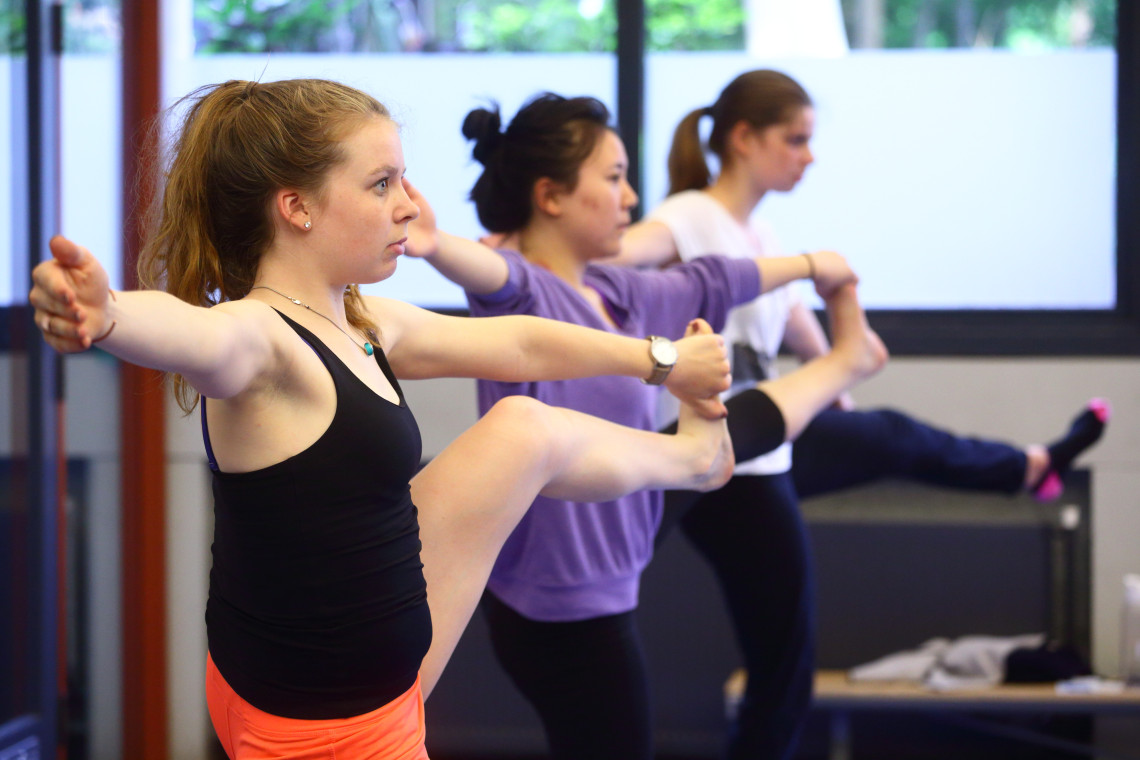A UT sports day just for women? ‘This goes beyond religion’

- by maurya18@gmail.com
- May 6, 2024

The idea was made possible by support (10,000 euros) from the UT Incentive Fund, intended to develop initiatives in the field of diversity and inclusion within the UT. Bouzguenda, originally from Tunisia and raised in Oman, working currently as Research & Innovation Project Manager at SBD within the UT, had been thinking about a sports day especially for women for some time.
Where does that come from? ‘Partly due to personal experiences’, says Bouzguenda. She loves to play sports. At the UT, she took a few yoga classes, but that number was limited to three. ‘Because, as a woman, I didn’t feel comfortable playing sports in a mixed class, a feeling that was caused by two factors’, Bouzguenda said.
Segregated rooms
According to Bouzguenda, this has only partly to do with a religious difference between women of Muslim background and women with other backgrounds. ‘In Oman and many other Islamic countries, segregated schools or gyms are the norm, or segregated rooms in the mosque, for example. I’m not saying that one is good and the other is bad, but it’s a cultural difference, which is why many Muslim women in the Netherlands or in other Western countries don’t feel comfortable in a mixed gym.’ In several studies, that difference emerges as one of the factors why women with a migration background in the Netherlands are more likely to be obese than native Dutch women.
But according to the project manager, the theme goes beyond just religious requirements. She is referring to the increasing popularity of ladies-only gyms, in the Netherlands for example. ‘Because some women don’t feel safe in a mixed gym, are harassed, or feel insecure or uncomfortable exercising in front of men. That doesn’t always have to do with religion.’
That is why Bouzguenda is organising a women-only sports day on campus on Thursday 23 May, with only female trainers. In the hope that students and staff with a Muslim background in particular will come to exercise that day. ‘I encourage them to come because I think the day can mean a lot to them, but also for the community.’ Bouzguenda is aiming for about a hundred participants.
First domino
In the morning and in the afternoon there are several sports workshops on the program. The day will end with a panel discussion – open to everyone – on the impact of Muslim women in the world of sport. ‘International top athletes – like Houda Loukili – come to talk about how they made it to the top as Muslim women and how they tackled challenges’, says Bouzguenda, who hopes that the sports day will act as a first domino. ‘It would be great if this day not only creates understanding, but also leads to the Sports Centre or the swimming pool having a women-only policy for one hour a day in the future, for example. So that women with a Muslim background also feel completely welcome in the UT community. This women-only sports day may appear not inclusive, but it is a tool for advancing equity by providing all women at UT with equal opportunities.’
More information and registration for the sports day can be found here.
The Latest News
-
January 5, 2025Nederland sluit Yellow Cup af tegen thuisland
-
January 3, 2025Top Crypto Casino’s – Betrouwbare en legale crypto casino’s in 2025
-
January 3, 2025Travel Store bestaat 50 jaar – een halve eeuw aan reiservaring en passie
-
January 2, 2025Europapa voert eindejaarlijst GfK Dutch Charts aan – Entertainment Business
-
January 2, 2025Wout-Jan van der Schans is nieuwe Nederlandse bondscoach! “Ik wil zelf een stap terugzetten in de sport en mijn ambities met TeamNL waarmaken!”





